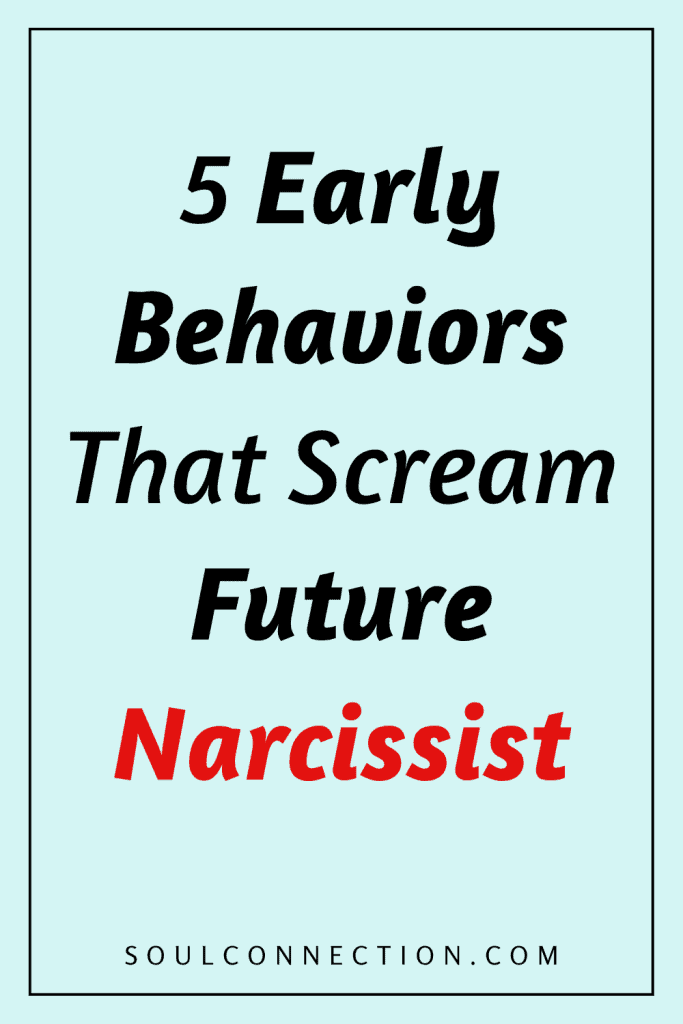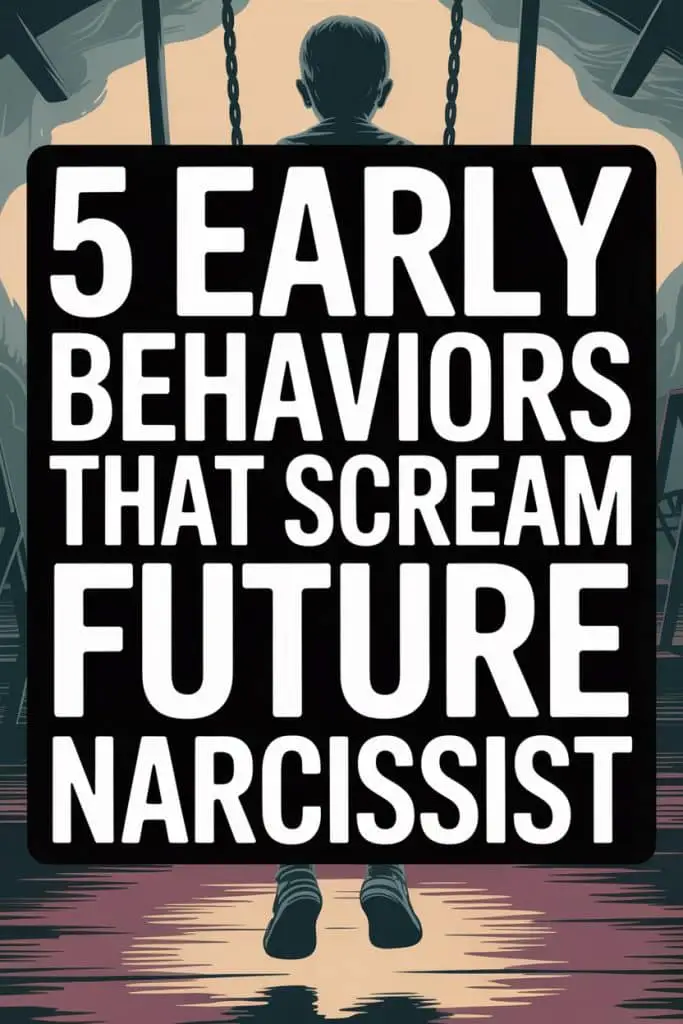Picture this: You’re sipping lukewarm coffee, watching your child—or your partner, or your mate’s kid—demand a standing ovation for putting on their own socks.
If you’ve ever quietly wondered whether those “look at me!” tendencies will mellow out, or if you’re living with a mini monarch in training, you’re in the right place.
Identifying narcissism early (in kids, partners, or even your own dear self) isn’t about slapping diagnostic labels on every self-absorbed moment. It’s about spotting patterns that, when left unchecked, can bloom into full-blown, attention-hogging adulthood.
Not every child who loves applause is a narcissist-in-waiting—but some behaviors do set off more alarms than a smoke detector at a barbecue.
Here’s what to watch for—and what the heck to do about it.
1. The World Spins Around Them and Only Them
Self-focus is sort of a rite of passage for toddlers and teens. But when someone—no matter their age—acts like the sun rises just to illuminate their face, you might be witnessing the early stirrings of narcissism.
It’s the kid who believes the group project should be renamed after them. The partner who can’t muster a “how was your day?” because, well, they’re busy regaling you with their own.
Or the friend who hijacks every birthday party with tales of their latest “achievements.”
When this habit becomes chronic, empathy takes a backseat (or, let’s be honest, gets booted from the vehicle entirely).
Narcissistic folks struggle to recognize anyone else’s needs as legitimately important. If little Tommy is forever front and centre, unable to tolerate sharing the limelight—or even basic attention—don’t expect that habit to vanish overnight.
What can you do about it tonight? Stop rewarding the spotlight-stealing with endless applause or attention. Gently but firmly redirect conversations to the needs and feelings of others.
If it’s your child, practice “empathy time”—ask them to guess how someone else might feel during a story. If it’s your partner, well, try not to roll your eyes so hard you pull a muscle, but do set boundaries around mutual conversation.
2. Apologies Are a Foreign Language
Ever met someone who treats “I’m sorry” like a phrase in Ancient Greek—impossible to pronounce and even harder to mean? Chronic non-apologizers often struggle to admit wrongdoing.
Not only do they resist saying sorry, but they’re also likely to double down, blame-shift, or even act wounded at the mere suggestion they’re in the wrong.
In childhood, this might look like refusing to apologize after knocking over a sibling’s tower (and blaming the tower for being in the way).
Grown-up versions include the artful “I’m sorry you feel that way,” which might as well be a billboard advertising narcissism.
The danger isn’t just garden-variety stubbornness. Consistently dodging responsibility is a warning sign for future relationship headaches.
If you’re raising—or dating—someone who can’t handle a whiff of criticism, you’re signing up for a lifetime of being wrong (even when you’re absolutely, categorically not).
Tonight’s action? Model genuine apology and accountability.
For kids, narrate your own small mistakes and fixes: “I snapped. I’m sorry. I’ll try to be calmer.” For adults, call out blame-shifting gently but firmly. “I’m looking for understanding, not excuses.”
And don’t be afraid to pause the conversation if it turns into the Blame Olympics.
3. Rules Are for Other People
Watch for the kid who ignores “please wait your turn” and barrels straight to the front of the line. Or the partner who views traffic laws as mere suggestions.
Early narcissists see rules as flexible, especially when obedience doesn’t suit their immediate needs.
Rule-bending isn’t always about rebellion; it’s about entitlement. The belief that norms or boundaries are for the rest of the world—not for them.
If they get caught, the response is rarely remorse. More likely, it’s indignation or attempts to wriggle out of consequences.
Sound familiar? This is the tiny seedling of “the rules don’t apply to me,” which, left untended, matures into the full-grown “I’m special, so I get a pass.” It’s not cute in a playground, and it’s downright exhausting at a dinner party.
Here’s a quick fix: Call out the behavior, not the person. “It’s important that everyone takes a turn.” Or with adults, “I’m not okay with double standards.”
Consistency matters more than volume—no need to turn into the fun police, but do enforce boundaries and consequences every time.
4. Manipulation Comes a Little Too Naturally
Persuasion skills are one thing—“Please, just one more biscuit, Mum. I’ll love you forever!”—but manipulation is a different beast.
When someone learns that twisting the truth, guilt-tripping, or emotional blackmail gets them what they want, watch your wallet and your sanity.
You might spot this in a child who fake-cries, swears they’re dying of thirst, and then promptly pours their juice on the dog for fun. Or the partner who spins a tale so elaborate, you wonder if you’re accidentally living in a soap opera.
Manipulation is a favorite tool of budding narcissists. It’s all about control and getting needs met at any cost, and it rarely involves honesty or empathy for the other side.
If you’re living with a junior Machiavelli, it pays to spot these moves early.
How to handle it tonight? Refuse to be drawn into the drama. If manipulation is obvious, call it out—calmly. “Are you trying to make me feel guilty so I’ll change my mind?”
For kids, teach the difference between asking and manipulating. For adults, reinforce your boundaries like a pro: “I won’t make decisions based on threats or guilt trips.”
5. Praise Is Oxygen, Criticism Is Kryptonite
A healthy ego appreciates a little praise. Narcissists, on the other hand, treat compliments like a basic human right. They don’t just want recognition; they need it. Constantly.
You might notice this in a child who demands applause for eating one pea, or an adult who turns every minor accomplishment into a social media event.
When praise isn’t forthcoming, things can get dramatic: sulking, anger, or suddenly rewriting the narrative so they’re the victim.
Even gentle feedback triggers outsized reactions. “Hey, maybe don’t colour on the walls” transforms into a declaration of war. “Do you even care about me?” “Everyone’s against me!” It’s exhausting.
How to cope? Praise effort, not just results—especially with children. With adults, steer away from feeding the ego monster.
Offer genuine, specific feedback, but don’t reward every attention-seeking tactic with applause.
And when criticism is necessary, keep your delivery calm, clear, and free of personal attacks. (If you get tears or tantrums, don’t take the bait.)
When Little Behaviours Become Big Problems
Spotting these five early behaviors doesn’t mean someone’s destined for a starring role in a true-crime documentary. Narcissism exists on a continuum, and most of us have our diva days.
But if these patterns are setting up camp in your home, your classroom, or your relationship, don’t wait for them to “just grow out of it.”
Consistent boundaries, empathy training, and a little tough love go a long way in preventing a lifetime of “me, me, me.”
And if you’re wondering whether it’s time to call in the professionals? Trust your gut.
Sometimes, outside help is exactly what’s needed to course-correct when self-absorption threatens to take over the show.
No one needs a narcissist stealing the spotlight at every family dinner.


